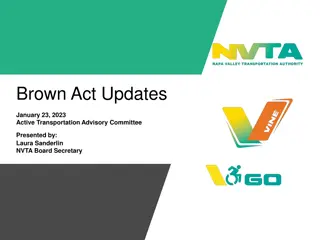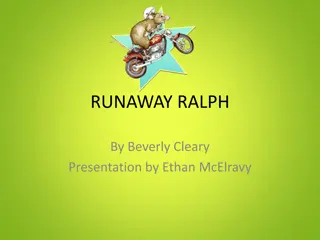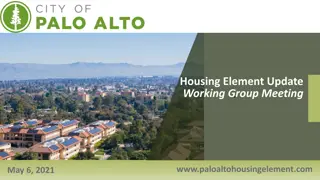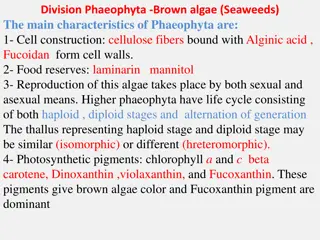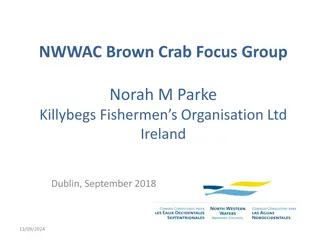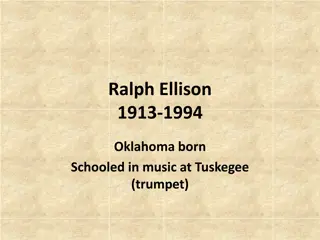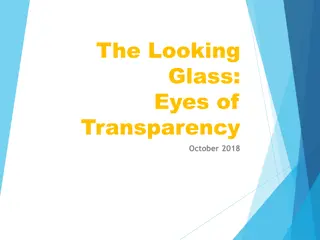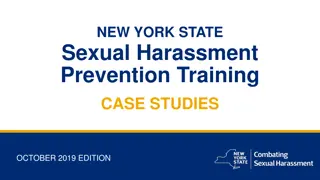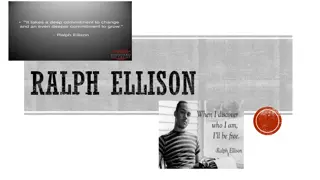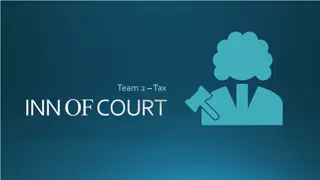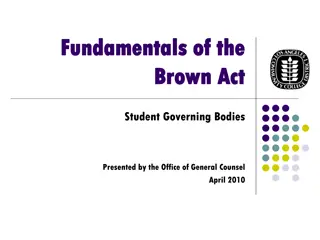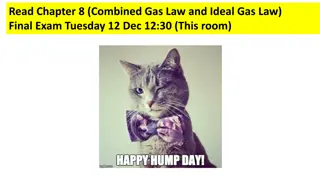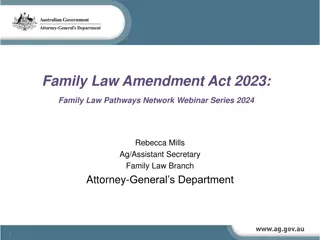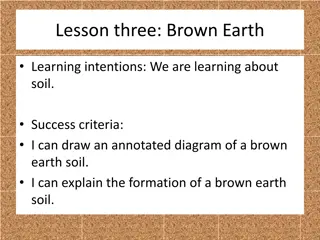Understanding the Ralph M. Brown Act: California's Open Meeting Law
The Ralph M. Brown Act, California's Open Meeting Law, governs public access to local government meetings to ensure transparency, public participation, and accountability. It mandates open meetings, availability of agendas, limited closed sessions, and prohibits secret ballots. Legislative bodies subject to the Act include city councils and standing committees. Exceptions exist for advisory boards created by mayors and ad hoc advisory committees. The Act applies to any gathering of a majority of the legislative body to discuss matters within its jurisdiction.
Download Presentation

Please find below an Image/Link to download the presentation.
The content on the website is provided AS IS for your information and personal use only. It may not be sold, licensed, or shared on other websites without obtaining consent from the author. Download presentation by click this link. If you encounter any issues during the download, it is possible that the publisher has removed the file from their server.
E N D
Presentation Transcript
Overview of The Ralph M. Brown Act California s Open Meeting Law Presented by the Office of the City Attorney February 22, 2017
Purpose & Intent To ensure that the actions of public bodies are taken openly and that their deliberations are conducted openly To facilitate public participation in all phases of local government decision-making and provide meaningful public access To curb misuse of the democratic process by secret legislation of public bodies 2 San Diego City Attorney
Basic Rules For Public Access Meetings must be open to the public and held on a regular schedule Meeting agendas must be available to the public in advance; only noticed items can be addressed Closed sessions are limited to specific purposes authorized in the Act No secret ballots allowed announce votes Rules are interpreted liberally in favor of public access. 3 San Diego City Attorney
Who is Subject to the Brown Act? Legislative bodies includes a commission, committee, board or other body of a local agency created by charter, ordinance, resolution or formal action of a legislative body The City Council, the Housing Authority, and the Public Facilities Authority are legislative bodies subject to the Brown Act Council standing committees with continuing subject matter jurisdiction also are subject to the Brown Act 4 San Diego City Attorney
Limited Exceptions Advisory boards and task forces created by the Mayor These advisory boards/task forces are not created by charter, ordinance, resolution or formal action of a legislative body Ad hoc advisory committees Composed solely of the members of the legislative body, which are Less than a quorum Limited purpose, and Limited period of time 5 San Diego City Attorney
What is a Meeting? The Brown Act applies to all meetings of the legislative body A meeting is any congregation of a majority of the legislative body at the same time and place to hear, discuss, deliberate or take action on any item that is within the legislative body s subject matter jurisdiction If you have unique quorum rules, consult your advisory attorney regarding this count 6 San Diego City Attorney
Serial Meetings are not Allowed A majority of the members shall not, outside a meeting authorized by the Brown Act: use a series of communications of any kind, directly or through intermediaries to discuss, deliberate, or take action on any item of business that is within the subject matter jurisdiction of the body. 7 San Diego City Attorney
Hear, Discuss, or Deliberate Deliberation broadly construed; includes not only collective discussion, but collective acquisition and exchange of facts preliminary to the ultimate decision Includes substantive discussions which advance or clarify a member s understanding of an issue, or facilitate an agreement or compromise or advance the ultimate resolution of an issue 8 San Diego City Attorney
Serial Meetings are not Allowed Serial communications Member A to B and Member B to C (no daisy chains or telephone trees ) Member A to B and Member A to C (no hub and spoke ) Email communications A majority cannot email each other to discuss topics that are within the subject matter of the body. (do not reply to all to emails that include other members; use caution with social media) Oral or Written no distinction 9 San Diego City Attorney
Social Media Q. The agency s web site includes a chat room where agency employees and officials participate anonymously and often discuss issues of local agency business. Members of the legislative body participate regularly. Does this scenario present a potential for violation of the Brown Act? A. Yes, because it is a technological device that may serve to allow for a majority of members to discuss, deliberate or take action on matters of agency business. Open & Public V, Revised., 2016, League of CA Cities 10 San Diego City Attorney
The Media Sensitive to prohibition on discussing matter of business to come before body General statements of views on policy issues are permissible Due process issues on quasi-judicial matters 11 San Diego City Attorney
Permissible Contacts Individual contacts between a member and another person is not a meeting If an individual contacts a majority of the body, members should not respond outside public meeting deliberations should occur in public One-way transmission of background materials and solitary review by members would not violate Act Employees and officials may communicate with members to answer questions and provide background but must not disclose position or comments of any other member 12 San Diego City Attorney
Permissible Gatherings A majority of members may attend a: Conference open to the public Community meetings Open meeting of another legislative body or agency Less than quorum committee Social or ceremonial event But, a majority of the members may not discuss Council or committee matters among themselves at these events 13 San Diego City Attorney
Holding Meetings Regular meetings Post agenda 72 hours in advance in location freely accessible to the public Special meetings Post agenda 24 hours in advance Emergency meetings Only in an emergency situation which severely impairs public health, safety, or both Location: Meetings must be held within City boundaries. Very narrow, specific exceptions Disability-related accommodations: Must be made available to allow for public participation 14 San Diego City Attorney
Public Participation Agendas: Written to Inform the Public Effective notice (date, time, location of meeting posted in public and on agency website) Brief general description of each item to be considered; may describe requested action Public Right to Attend Cannot require names or other information as a condition of attending meeting Voluntary sign-in is allowed Limited information on speaker slips San Diego City Attorney 15
Public Participation Right to Comment at Regular Meetings Allow public comment on any matter within the Council s subject matter jurisdiction Allow public comment on agenda items before action is taken on an item Reasonable regulations, including time limits, may be adopted Allow comment even if not on the agenda (non-agenda public comment) at regular meetings 16 San Diego City Attorney
Public Participation Response to Non-Agenda Public Comment May not discuss non-agenda items raised during public comment May provide a brief response to statements or questions, but no discussion or action May ask questions for clarification May refer the matter to staff for follow-up or to report back May direct that the matter be placed on a future agenda - but no response is required 17 San Diego City Attorney
Public Participation Must allow criticisms and complaints Cannot regulate or restrict content (except to limit to matters within jurisdiction) Cannot rule speaker out of order because disagree with content Speaker can be restricted if disrupts, disturbs or otherwise impedes the orderly conduct of the meeting Ejection justified only when speaker actually disrupts the proceedings 18 San Diego City Attorney
Public Participation at Special Meetings Must allow public comment on agenda items May allow non-agenda public comment, but not required to do so; should be listed on the agenda 19 San Diego City Attorney
Public Right to Documents Public has a right to review agendas and other writings distributed to a majority of the Council members Except for privileged documents, public records shall be available for public inspection and copies provided for a reasonable fee Public has a right to record the meeting with an audio tape or videotape recorder, or take photographs 20 San Diego City Attorney
Closed Session Closed sessions are allowed for specific subject areas listed in the Brown Act to protect the public interest, for example: Litigation Real estate negotiations Labor negotiations Personnel matters Very few City boards or commissions have closed session authority 21 San Diego City Attorney
Closed Session Exceptions Narrowly Construed The Act provides specific safe harbor language for noticing The exceptions themselves are narrowly construed. For example: Litigation exception cannot be used to avoid public hearing Real Property exception is limited to price and terms 22 San Diego City Attorney
Closed Session Summary Limited Subjects Publicly Noticed Agenda With public comment before hand Limited Attendance Only members of the body and essential persons Confidential The Act prohibits leaks of information presented in closed session Consult your advisory attorney San Diego City Attorney 23
Violations of Brown Act Civil Violations An interested party may begin action Council will have an opportunity to cure or correct actions taken Action may be invalidated by a court, with certain exceptions Costs & attorneys fees may be awarded Criminal Violations Participation in a meeting in violation of the Brown Act with the intent to deprive public of information Subject to misdemeanor prosecution 24 San Diego City Attorney
Summary All meetings must be open, public, and properly noticed. Discussions, actions, deliberations must take place in open meetings. All persons must be permitted to attend and participate in the meetings. Judicial interpretation favors open and public meetings and exceptions are narrowly construed. 25 San Diego City Attorney
City References Charter section 216.1: Access to Government Information Council Policy 000-06: Open Meetings 26 San Diego City Attorney
Resources Open & Public V: A Guide to the Ralph M. Brown Act, Revised (2016) League of California Cities https://www.cacities.org/Resources- Documents/Resources-Section/Open- Government The Brown Act, Open Meetings for Local Legislative Bodies, (2003) California Attorney General s Office* http://oag.ca.gov/open- meetings 27 San Diego City Attorney
Questions? 28 San Diego City Attorney




